 I’m a mother, living in Scotland, and it’s awful that I can’t put my name to this but I don’t want to hazard my son’s future in school.
I’m a mother, living in Scotland, and it’s awful that I can’t put my name to this but I don’t want to hazard my son’s future in school.
I’ve followed Upstart for a couple of years now, read Play is the Way, watched the book groups and read a whole load of other literature that supports the idea of a kindergarten stage for three- to seven-year-olds. I can’t imagine why we’re not doing it.
When registering my son for school, my gut feeling was ‘I don’t want him to go to school yet’ but I really didn’t seem to have any choice. Before he began P1 I made these feelings clear to the school, emailed them regarding my concerns, spoke about how I was feeling as a parent and where my son was at. I stated that my main concern was that I didn’t want him pushed into anything he wasn’t ready for and that a play-based learning approach is something that I fully support.
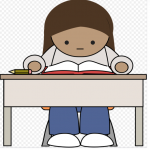 We P1 parents were all given welcome packs but I noticed that the word play wasn’t mentioned once, and that concerned me straight away. It was also clear from the homework my son brought home not long after the first term began that the P1 children had all started on the three Rs. They had to learn letter sounds and practice writing the letters.
We P1 parents were all given welcome packs but I noticed that the word play wasn’t mentioned once, and that concerned me straight away. It was also clear from the homework my son brought home not long after the first term began that the P1 children had all started on the three Rs. They had to learn letter sounds and practice writing the letters.
The three Rs in P1
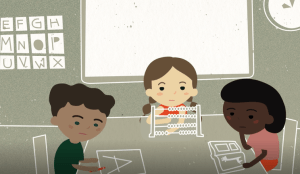 I’ve read the new practice guidance for Early Years (Realising the Ambition: Being Me) and this whole class emphasis on formal literacy learning doesn’t tally with the developmental approach it describes. I also know from my older children’s experience that children are usually put in ability groups for literacy and numeracy – and that even four- and five-year-olds know which is the ‘top’ group and which is the ‘bottom’. This obviously affects their self-image as learners.
I’ve read the new practice guidance for Early Years (Realising the Ambition: Being Me) and this whole class emphasis on formal literacy learning doesn’t tally with the developmental approach it describes. I also know from my older children’s experience that children are usually put in ability groups for literacy and numeracy – and that even four- and five-year-olds know which is the ‘top’ group and which is the ‘bottom’. This obviously affects their self-image as learners.
Well, my little boy is clearly somewhere near the ‘bottom’. At the end of the first half term, he came home with a phonics folder in his bag (various worksheets and colouring in sheets, flashcards, etc.) and a letter explaining that he isn’t confident with the letter sounds the class has been learning and please could I support him with this at home. It seems very pushy and it really upset me.
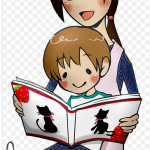 My family and I spend a lot of time together – we read, explore the outdoors (my son loves being outside) we play games, cook together, I read to him every night and I do encourage him to look out for letters/sounds and numbers in the environment … but I don’t push him. In my opinion I just don’t feel he is ready for ‘pushing’, especially at the pace that the school are expecting. This concerns me – is he going to be labelled throughout school now because he’s not where they think he should be?
My family and I spend a lot of time together – we read, explore the outdoors (my son loves being outside) we play games, cook together, I read to him every night and I do encourage him to look out for letters/sounds and numbers in the environment … but I don’t push him. In my opinion I just don’t feel he is ready for ‘pushing’, especially at the pace that the school are expecting. This concerns me – is he going to be labelled throughout school now because he’s not where they think he should be?
Where is ‘Being Me’?
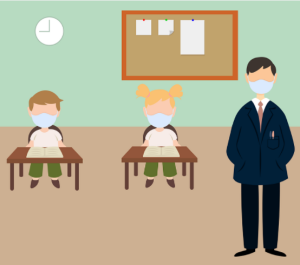 Where is ‘Being Me’ in my son’s P1 class? There doesn’t seem to be any individuality shining through the work they’re doing. When learning the sound ‘P’ the children all painted the same picture of a pig. Everything is the same! And I know there are simple things missing from his p1 classroom. No water play, no blocks, not enough outdoor time, hardly any singing. I’d heard before he started at the school that they were hoping to have a playroom set up but to my knowledge this hasn’t happened.
Where is ‘Being Me’ in my son’s P1 class? There doesn’t seem to be any individuality shining through the work they’re doing. When learning the sound ‘P’ the children all painted the same picture of a pig. Everything is the same! And I know there are simple things missing from his p1 classroom. No water play, no blocks, not enough outdoor time, hardly any singing. I’d heard before he started at the school that they were hoping to have a playroom set up but to my knowledge this hasn’t happened.
My girl attends the same school and I’ve had no concerns with her progress. But when she was in P1 she was different – she loved writing and learning all her sounds etc, so I encouraged and supported her. It just shows that children are all different and learn at their own pace.
But I can’t imagine that my daughter (or any other child) would have been in any way ‘held back’ in their development if they’d had another year or so to learn through play before formal teaching began. In fact, I’m sure that – in terms of their overall development and well-being – they would have benefited from more play, especially outdoors. It’s so difficult for working parents to provide enough opportunities for outdoor play. A kindergarten stage would be good for all children’s long-term physical and mental health. I wish everyone in education, and all our politicians, would read Play is the Way.
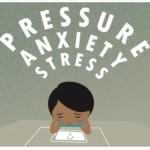 As for my little boy, I’m worried that the pressure to learn phonics when he clearly ‘doesn’t get it’ may affect his attitude to school and learning. If only he could have another year or so, with lots of opportunities for play and exploration, I feel sure he’d be able to rattle through all these letter sounds … instead, he’s learning to think ‘I can’t do it.’
As for my little boy, I’m worried that the pressure to learn phonics when he clearly ‘doesn’t get it’ may affect his attitude to school and learning. If only he could have another year or so, with lots of opportunities for play and exploration, I feel sure he’d be able to rattle through all these letter sounds … instead, he’s learning to think ‘I can’t do it.’
Thank you for reading this and giving me the opportunity to get it off my chest. There must be so many parents out there who are worried about their children. And we don’t speak up because we don’t want to antagonise the school authorities.


Thank you for standing up and speaking out. The push to formalise P1/Reception is alive and well and it needs to be called out again and again. Keep fighting on. You are not alone.
Sending love and solidarity from England
Elaine
Hi As a former early years teacher, researcher and author, I appreciated your extremely articulate post. I think you are right to be worried about what sounds like a rather formal approach. Chris Athey was my guru and she would have said “wide experiences deepen children’s confidence and competence”. This rather narrow focus and lack of focus on the individual is not good for young children, whether they are interested or not. I hope you can get some things changed in your son’s school or possibly move him to somewhere more early years focussed. Good luck. Cath
This is a heart-breaking read, more so because what is being articulated is being experienced by COUNTLESS families. It’s not the children, schools or teachers ‘at fault’: the system is not keeping pace with knowledge of child development and how children learn best – actively through interests and self motivation. Many professionals understand and are making valiant attempts to use a play pedagogy…but the odds are stacked against them partly because of dire teacher-child ratios, lack of outdoor time, and sadly to some extent a demand for achievement in ‘the 3Rs’. All evidence points to the fact that latter can wait – and that all the learning through play – the opportunities to discover, talk, experiment etc etc form great future learning foundations. Generally primary school hours used to be shorter, and children played outdoors daily after school. Schools P1-3 also had play houses, sand, water, construction and much more, freely available. Oh and few children went to school aged 4!! A kindergarten stage is what is needed! That is why we need – families and staff together – to keep putting the evidence out into the wider world and raising awareness.